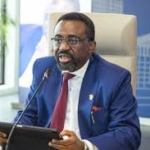
SEND Ghana has noted the government’s increased allocation to the social sector in the 2026 national budget but says persistent implementation challenges could limit the intended benefits for vulnerable groups.
In a statement copied to the Ghana News Agency, the organisation said the GH¢302.4 billion budget — equivalent to 18.9% of GDP — includes GH¢67.8 billion for the social sector, up from GH¢53.7 billion in 2025.
According to SEND Ghana, several proposals it has previously advanced appeared in the budget, including incentives to retain teachers in rural communities, the completion of Agenda 111 health projects, and support for agricultural value addition.
The group acknowledged government plans to build new basic schools, teacher accommodation, and improve sanitation facilities. It noted the proposed 20 per cent allowance for teachers working in rural areas but urged the government to address staffing shortages more broadly and equip new schools with water and gender-sensitive sanitation systems.
SEND Ghana called for more investment in special and inclusive education, pointing out that many such schools remain poorly funded and unevenly distributed across the country.
On health, the organisation noted the intention to complete 522 CHPS compounds and 20 hospitals in 2026. However, it cautioned that new buildings alone would be insufficient without adequate staff, functioning referral systems, and reliable supplies of essential medicines.
Given the rise in non-communicable diseases, SEND Ghana urged a stronger focus on preventive care, recommending wellness centres in all new facilities and expanded financing for early detection and screening.
The group also said public-private partnerships under MahamaCare must be structured to avoid high out-of-pocket payments for patients.
SEND Ghana described the allocation of GH¢292.4 million for free sanitary pads for schoolgirls as important but warned that the policy risks excluding out-of-school adolescents and apprentices who also experience period poverty.
It acknowledged the GH¢1 million allocation to the Domestic Violence Fund but said multi-year, predictable funding would be needed to improve services for survivors.
The group further called for a dedicated National Health Insurance Scheme (NHIS) budget line for family planning commodities to address recurring nationwide shortages.
On agriculture, SEND Ghana cited concerns over transparency in the distribution of machinery under the Farmer Service Centre initiative and urged measures to prevent elite capture. It also said the new National Policy on Integrated Oil Palm Development would require a clear implementation plan and strong monitoring to address issues such as the circulation of substandard agrochemicals.
While noting increased allocations to Free SHS, health infrastructure, and social protection programmes such as LEAP (GH¢1.057 billion) and School Feeding (GH¢1.98 billion), SEND Ghana said the credibility of budget execution remained a key issue.
The organisation said it would continue to engage government, Parliament, civil society, and citizens to monitor how the 2026 budget is implemented.




